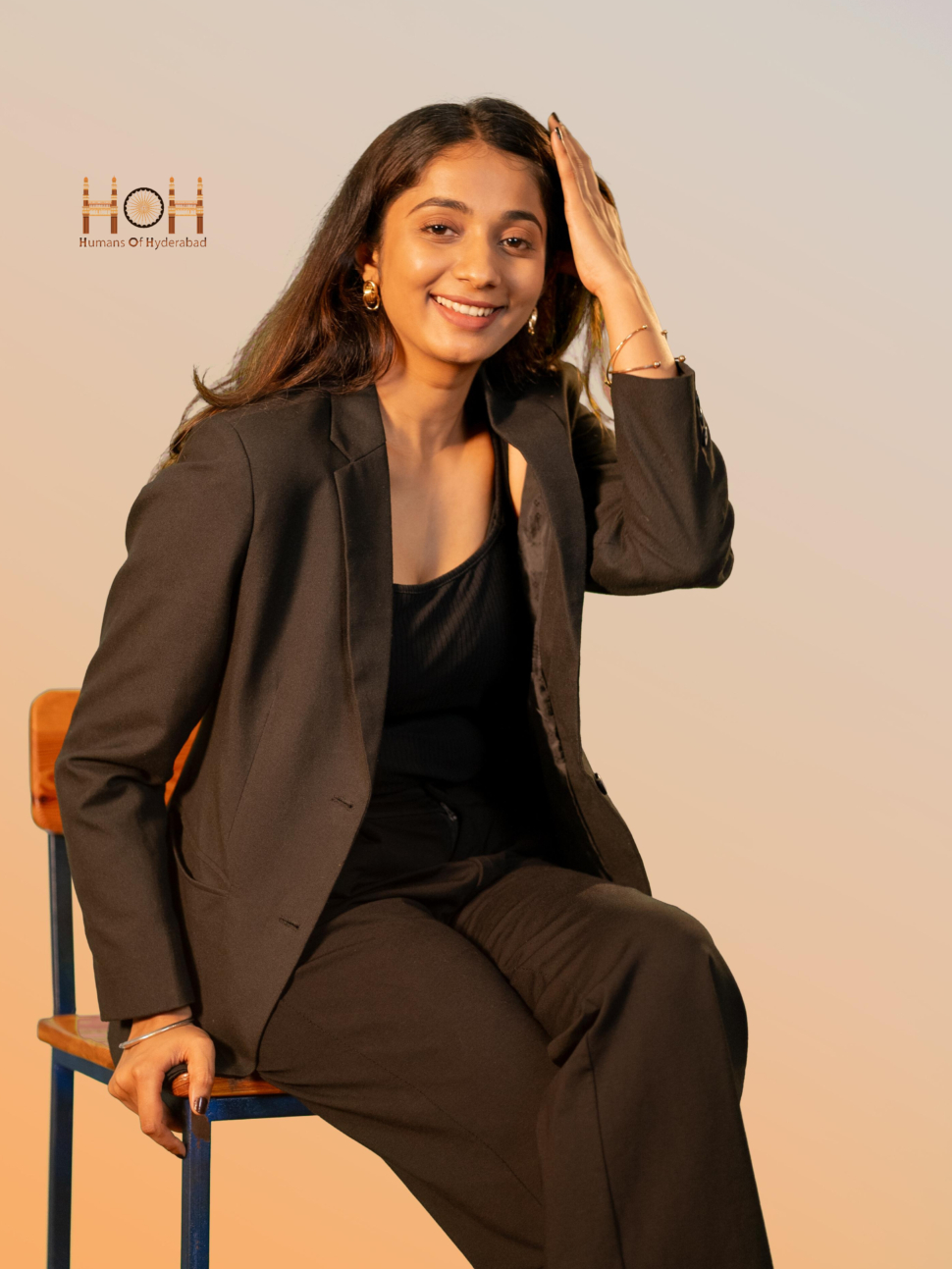“I was born and raised in Navapur, a small town in Maharashtra. I was always drawn to art right from my childhood. I painted, danced, and spent countless hours acting in front of the mirror. I didn’t know anything about how the film industry worked or how someone like me could break into it, but one thing was crystal clear — I wanted to act.
After school, I moved to Pune for my intermediate studies and later joined a college to study fashion design. But my heart was always somewhere else. I started taking dance classes to train in Bollywood and hip-hop styles, and that’s when fate stepped in. My dance teacher introduced me to someone from a theatre group. At the time, I had no idea what theatre even meant. In my hometown, “theatre” just meant a place to watch movies. I had no clue there was a world where people performed live on stage.
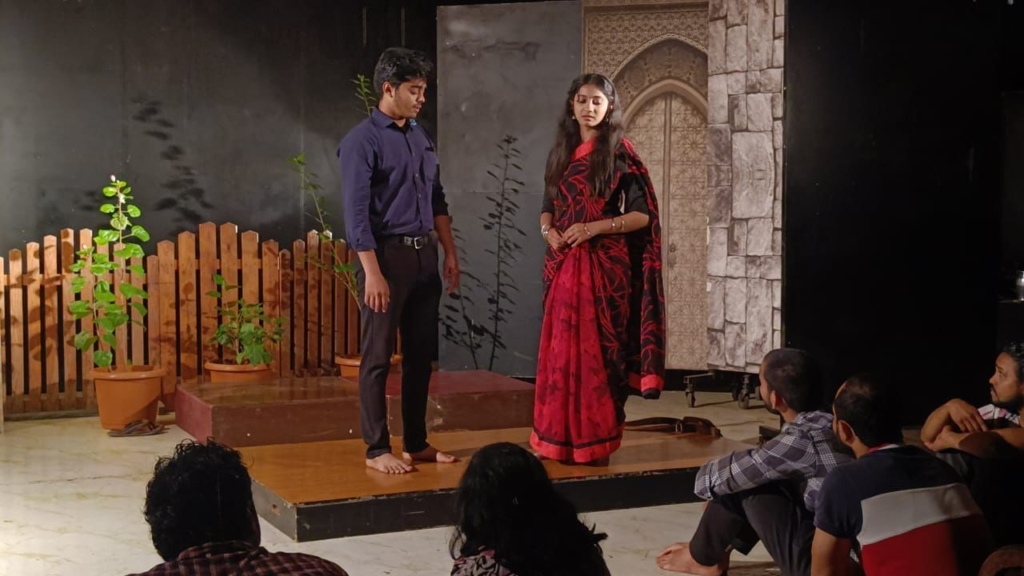
He took me to Swatantra Theatre Group, a Hindi theatre collective in Pune. That’s where everything changed. My gurus, Abhijit Chaudhary sir and Dhanashree Heblikar ma’am, became the foundation of my acting journey. I still remember the first time I had to perform on stage, I was terrified. They gave me a lengthy monologue to memorise in just two days. I practised everywhere—while brushing my teeth, walking to class, even in the washroom. And when I finally got on stage and performed, something clicked. I understood, for the first time, what it meant to live a character, not just play one.
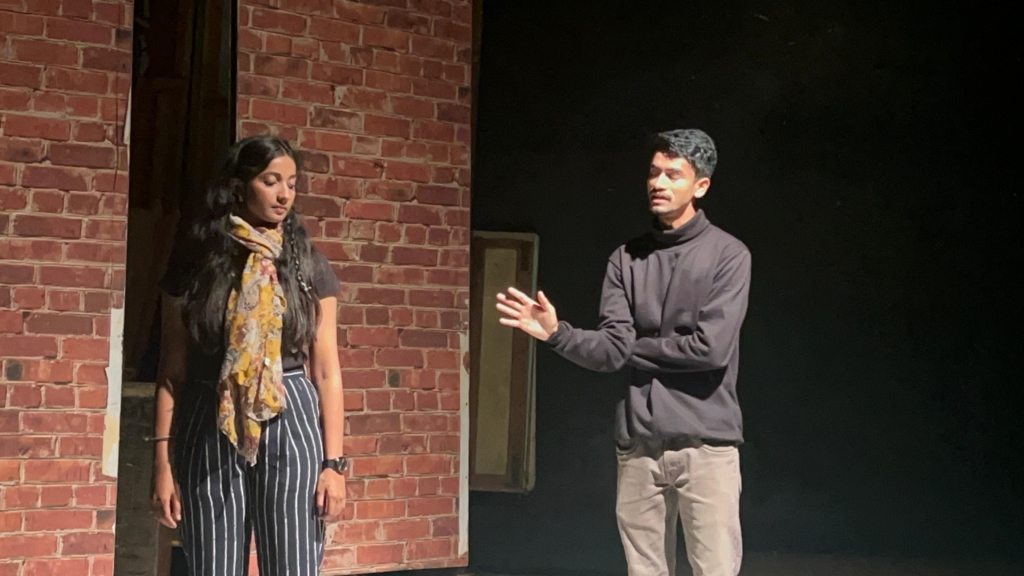
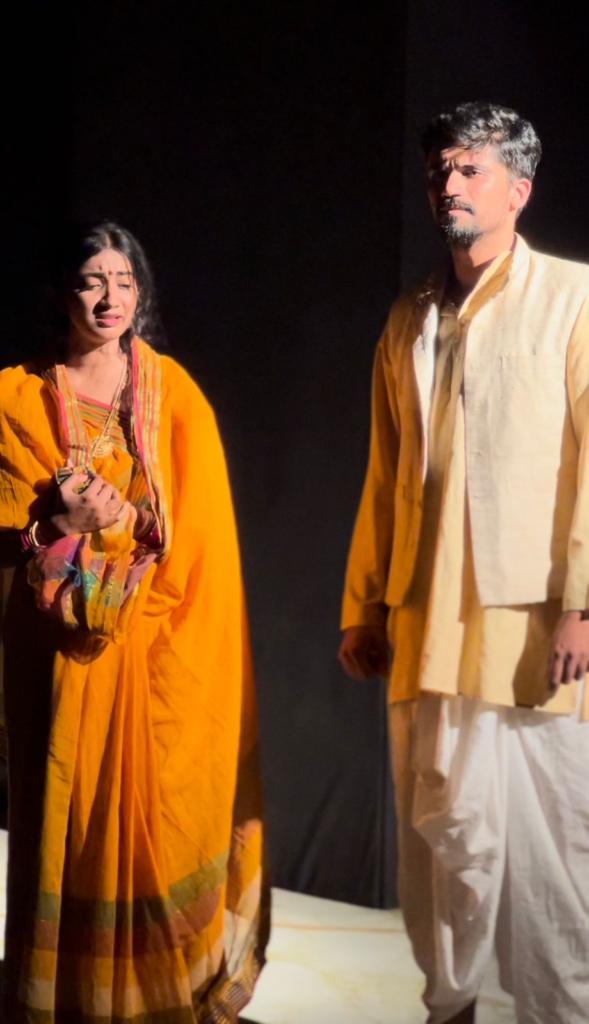

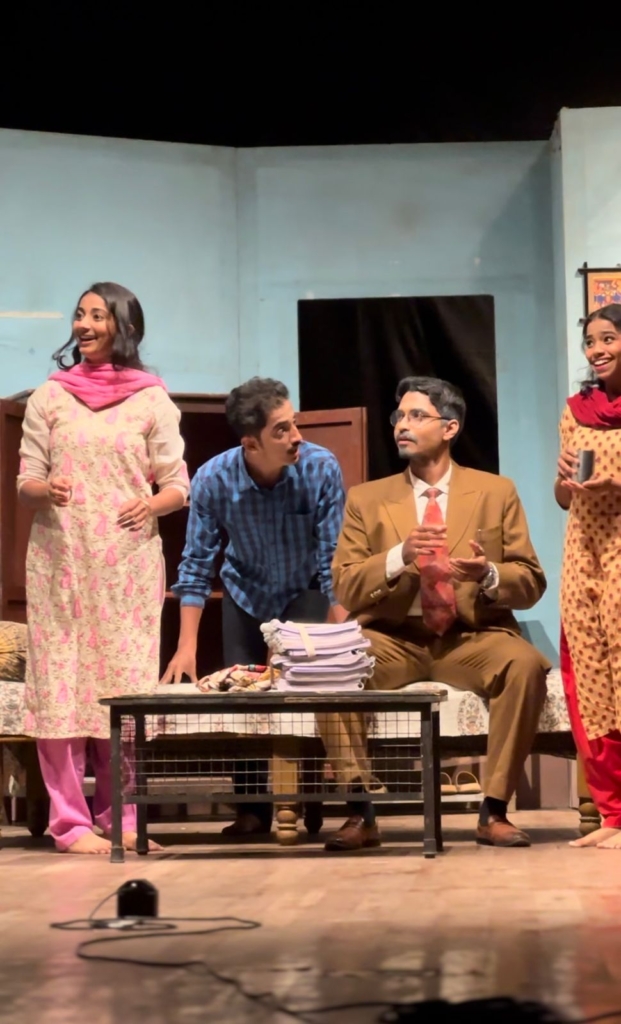
For three years, theatre was my life. I rehearsed for up to 18 hours a day. I learned voice modulation, timing, character development. I played prominent roles in powerful productions like Jab Shehar Hamara Sota Hai by Piyush Mishra and Kabira Khara Bazar Mein. Theatre was not just art—it was structure, intensity, and transformation.
Somewhere along the way, I met with a serious accident. My bike fell on me and my kneecap got displaced. The doctors prescribed rest, but I couldn’t stay away from the stage. I performed with a hinged kneecap, even in physically demanding roles. That’s when I knew, no matter what, I would never give up acting.
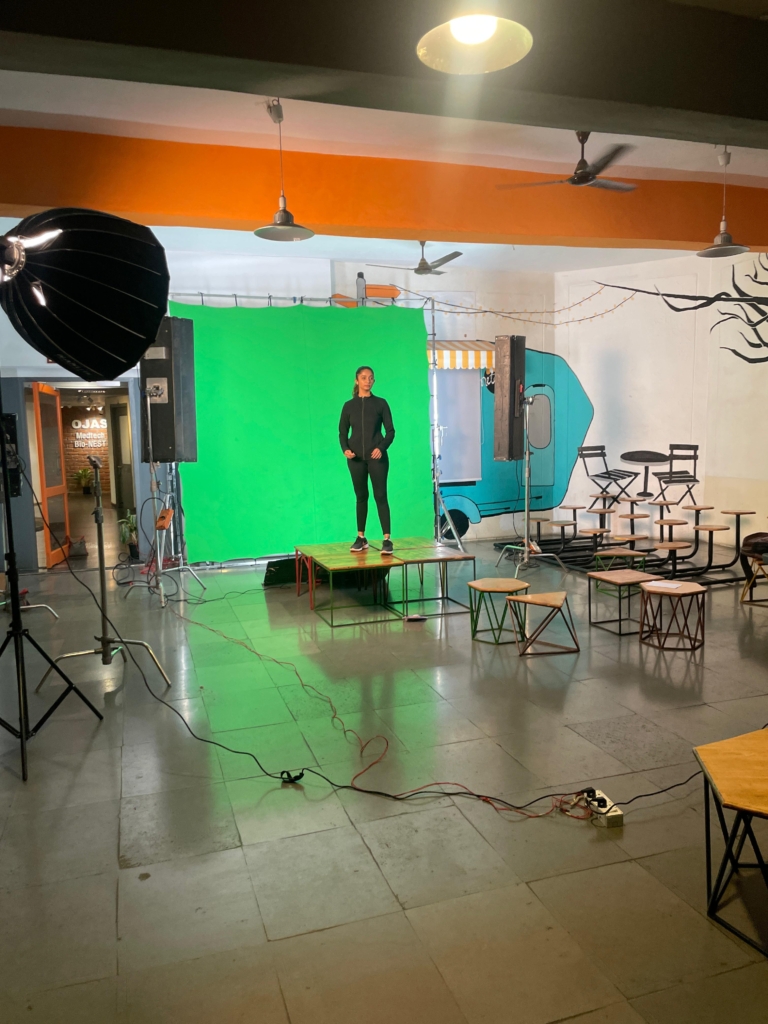
Eventually, I found myself in front of the camera, and that’s when the real confusion began. I could deliver monologues to an entire auditorium without flinching, but now I didn’t know how to act for a lens just inches away. Film students from Symbiosis and MIT would show up at our theatre looking for actors. They’d say, “We’re making a short film, want to be in it?” I was always the first to say yes.
What followed were my early on-camera disasters. My first take, I delivered my lines like I was announcing the apocalypse. The director looked pained and said, “Uh… Siddhi? The mic is right there. You can whisper.” My hands flailed like I was swatting invisible bees. The cinematographer sighed and muttered, “Maybe… 80% less jazz hands?” During one shoot, my nervous breathing was so loud, they had to stop rolling.
That night, I stared at myself in the mirror, frustrated. How could I be worse than complete beginners?
The theatre had wired me to go big or go home. But film? Film demanded the opposite. It was like learning to walk again. My “normal” face looked bored on camera. My “emotional” face looked insane. Finding the balance took weeks. One director told me, “Your left eyebrow is doing its own monologue.” But then, one day, on the 20th take of a simple scene, I stopped trying to act and just… existed. The director finally smiled and said, “There. That’s the one.”
I thought I had figured it out. Then I moved to Mumbai.
My first TV role was a short role—but it was mine. I was so excited, until I watched myself next to the lead actor, who barely blinked while delivering his lines. I, on the other hand, looked like a startled owl in every frame. Later, standing backstage at the L’Oréal awards, I looked around in disbelief. I whispered to myself, “How did the girl who couldn’t stop overacting in short films end up here?”
And then came the message I almost ignored—a DM inviting me to audition for a film about porn addiction. At first, I was hesitant. It was bold. Risky. A little scary. But the monologue hit me hard. I read it once and something clicked. I wasn’t Siddhi from Navapur anymore. I was Shivani — raw, vulnerable, real.
I nearly missed the audition, but I made it. After several rounds, I got the lead role in Million Views. I was just twenty-one, no industry background, and here I was, starring in a feature film.
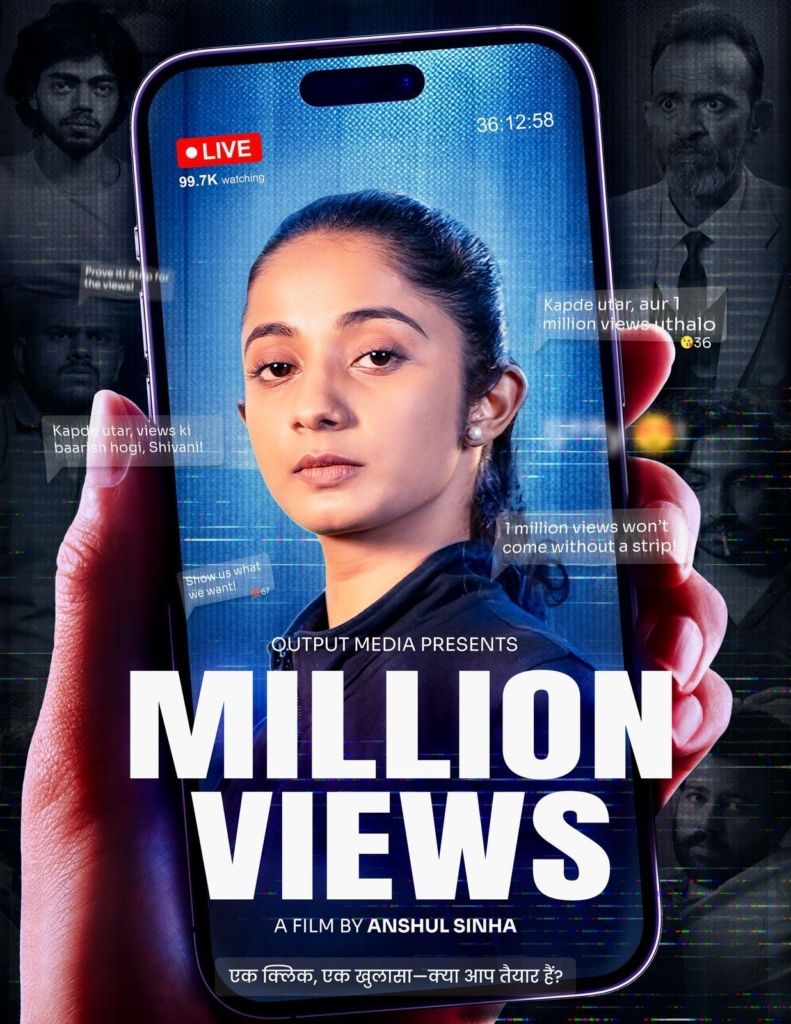
Preparing for the role was a journey in itself. My director, Anshul Sinha, pushed me to transform, body and soul. I lost weight, chanted the Gayatri Mantra 108 times a day for 40 days, and studied addiction psychology. This film wasn’t about shock value. It was about the human side of addiction—the struggle, the shame, the healing.
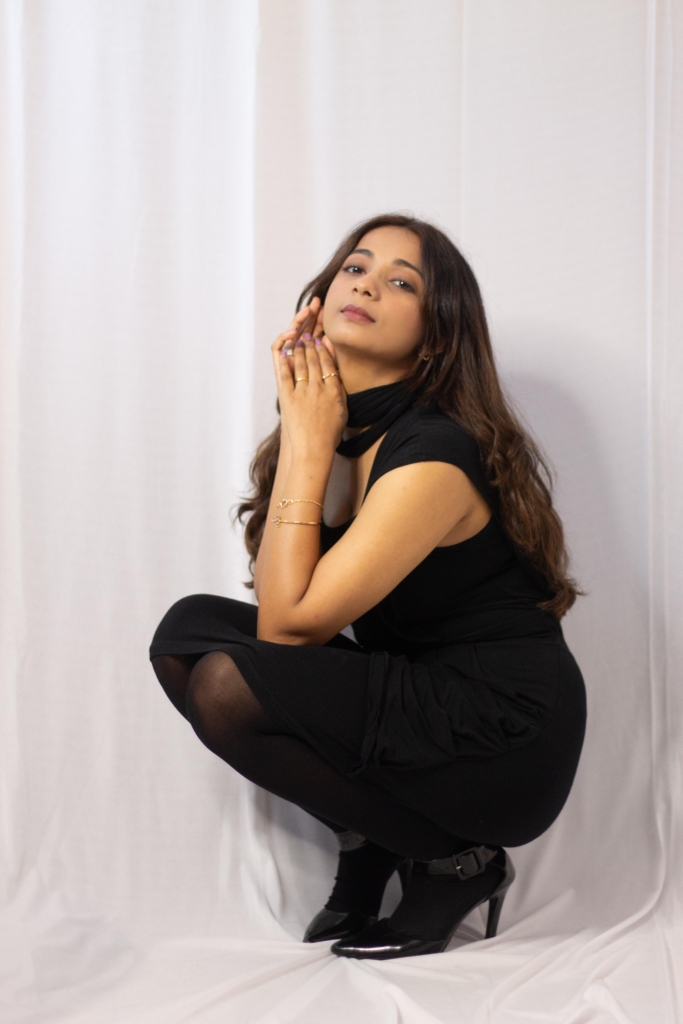
We shot in Hyderabad. It was the first time I’d ever lived away from home. But the crew made it feel like family. The AD, Pratibha, became my emotional anchor. The story we were telling—about addiction, empathy, and redemption stayed with me long after the cameras stopped rolling.
Now, as the film nears its release, my world feels different. My theatre mentors, old friends, even strangers online—everyone’s excited. My mom, who always believed in me quietly, cried when she saw me on screen. My dad still doesn’t know about my theatre days, but I hope one day he’ll be proud.
Looking back, I’ve realised something. Theatre teaches you to perform. The film teaches you to be. Every cringe-worthy take, every over-the-top gesture, every forgotten line was necessary. Even the take where I accidentally spat on the camera lens—it all mattered. The best actors aren’t the loudest. They’re the ones who make you lean in and listen.

When I see new actors struggling with their first on-camera performance, I want to hug them and say, “It’s okay. We’ve all been the disaster in the editing room. Just keep going.”
If you’re an aspiring actor, I’ll tell you this: discipline matters. Stay fit. Train every day. Don’t let rejections break you. Film industry is tough, but your spirit has to be tougher. Learn how the industry works. Think like an artist, yes, but also like a professional. And never stop evolving. Take up every challenge that scares you. That’s where the growth is.
I don’t just want fame. I want to tell stories that matter. Whether I’m playing a lead or just a one-scene character, if the story moves me, I’m in.
Million Views is just the beginning.
From a quiet girl in Navapur to an actor in Mumbai, my journey hasn’t been easy. But every struggle, every sleepless night—every bit of it was worth it. Because when the spotlight hits and the camera rolls, I’m no longer Siddhi.
I become the story.
And that’s the magic.
The curtain rises. The story continues.”
- Siddhi Jaiswal, Actor
